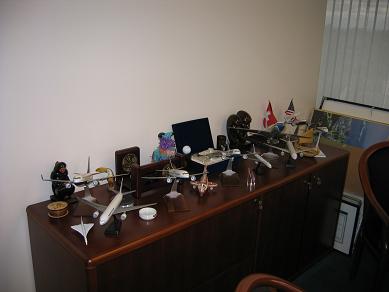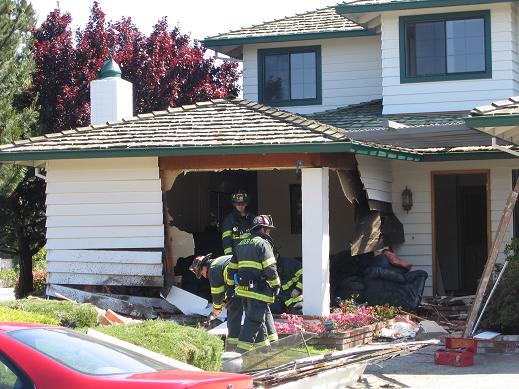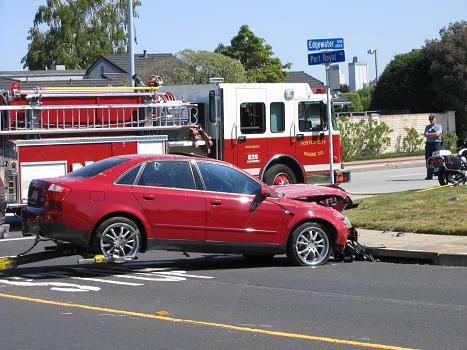Along with all the other guys in the dorm I felt trepidation when the envelope came from the Selective Service. The draft lottery randomly ranked each day of the year (from 1 to 365, even American Studies majors could figure that out), and one’s birthday would determine the likelihood of being called up. Although we had college deferments, there was always the chance that the war would get worse and that some of us would have to go, if not now, then when we graduated.
You didn’t want to get a number below 100, from one to three hundred you were progressively less nervous, and above 300 you didn’t have to worry. And my number was……332! I was safe, and the whole issue became moot when the all-volunteer military was instituted shortly thereafter. So I never served nor had to think about what I would do if I were drafted. Acknowledging that stated intentions aren’t worth the disk space they’re stored on—putting it another way, talk is cheap-- I’m fairly sure I would have reported for duty. I’m reluctant to volunteer for anything, but once I’ve committed or have been required to do something I’ve got a pretty good record for seeing it through. For confirmation ask anyone who knows me (just not my wife, please).
There’s been a lot of talk lately about re-instituting the draft. There are obvious benefits: 1) remedying the putative manpower shortage in the armed forces; 2) spreading the sacrifice across all strata in our society, because the burden of the volunteer army, again putatively, falls disproportionately on minorities and the disadvantaged. But many of the proponents are disingenuous: remembering Vietnam, they hope re-instituting the draft will prompt many others to turn against the use of military force. (In my humble opinion, I believe there is widespread aversion to the use of force anyway, so we’re talking about making the threshold even higher.) If the sons and daughters of leaders were forced to be in harm’s way, the thinking goes, we wouldn’t be so quick to pull the trigger. That is undoubtedly true.
If my college-age son were drafted and sent to fight in Iraq, and if I thought the reasons for the war were mistaken, I would do everything—legally—in my power to stop the war and bring him home. But if he, after careful deliberation, voluntarily enlisted under the present system, I would support him in his decision and bite my tongue concerning what I thought about our government’s policies. Many parents of serving sons and daughters may well undergo similar thought processes. Some opponents of the war, therefore, promote the re-institution of the draft as a means of marshalling support for a political argument that they, so far, have been unable to win.
Do we really need to revisit the advantages of a volunteer over a conscripted army? The volunteer military is not only well-trained and experienced, but more importantly, they all chose to be there and as a group are more highly motivated. In our free society we allow individuals as much latitude as possible to make their own decisions, especially in matters of life and death, and the volunteer army is consistent with that value. Once the shooting started, to be sure, a few changed their minds, but in far fewer numbers than would have been resentful or even openly rebelled in a conscripted army.
There is an economic argument as well. The true cost of government is much greater than the money it spends. For example, if my city wants to build a park it can purchase the land from the developer and construct the park: the cost would be shown explicitly in the city’s budget. Instead, in return for granting construction permits, the city makes the developer build the park and donate it to the community. (I happen to love parks and am just pointing out through a simple example how, through its regulatory power, government can achieve its goals while keeping the cost of government hidden.)
When the draft was in effect, government procured the services of draftees at a cost far below their market value, i.e., the price at which individuals would be willing to sell their labor in a non-coercive environment. The draft quite rightly has been called a tax upon the young, who are forced to donate, or at least discount, their services to the government. The volunteer army reflects more accurately the cost to our society because military pay and benefits, by definition, are set at a level sufficient to attract resources from competing uses.
Of course, there are reasons besides money that cause people to join the armed forces. Which leads us to the example of Pat Tillman, the Arizona Cardinals safety who forsook a multi-million dollar contract and an All-Pro career in the National Football League to join the U.S. Army Rangers. Mr. Tillman died in battle earlier this month in Afghanistan. His story has been recounted by dozens of major news outlets, and there is no reason to repeat those chronicles here.
Mr. Tillman did not enlist because military pay and benefits improved his standard of living. Despite his youth Mr. Tillman had already achieved the objects of desire in our secular society—fame, money, and popular admiration--so it is very clear that he acted due to other motivations. Not only did he turn away from all of it—as some do for reasons of family or avocation—he put himself at risk of never being able to go back, because of injury or death, to his past life.
Mr. Tillman did not enlist because he was forced by the Selective Service. If he had been drafted, and died in the service of his country, he would rightly have been honored as a hero, but his ultimate sacrifice would not have struck the chord as loudly as it has today. The voluntary nature of his decision changes the discussion from the “waste” of a young life prematurely cut short—and the parties who must be blamed for that waste—to an examination of the choices he made and why so many of us find them admirable.
Each person has the power to control how his time, talent, and treasure are to be spent in this life. Waste does not exist when they are put to their highest and best use, and Pat Tillman by all accounts believed he was doing just that in the Army Rangers.
Godspeed, Mr. Tillman, and thank you. © 2004 Stephen Yuen
Thursday, April 29, 2004
Monday, April 26, 2004
Challengers Baseball
The lake at Berryessa Community Center
Yesterday’s little league Challengers baseball game was held at the Berryessa Community Center in Milpitas, just beyond the northeastern boundary of San Jose. The temperature soared into the 90’s, and many of the kids took the field in the second (and final) inning only after much cajoling. After he complained of over-heating, the catcher sat down and I took his place. The only protective gear I needed was suntan lotion, so I survived the experience.
In Challengers baseball no hitter ever strikes out, and parents of both teams cheer as runners round the bases. For these are special players: they have multiple sclerosis, Down’s syndrome, and other severe physical and mental disabilities. They endure challenges far more daunting than most of us will ever face in our lifetimes.
In this sport parental assistance is not only permitted but welcomed.
Every batter stands at the plate until he or she finally hits the underhand, soft-baseball pitch. On the rare occasions when the ball is fielded and actually makes it to first base, the runner is still safe and is assured of advancing on subsequent hits until reaching home. A pointless exercise, perhaps, from the perspective of the competitive and goal-oriented, but the kids enjoy it, and that’s enough reason to come every week. © 2004 Stephen Yuen
[A parent with "normal" kids has this perspective.]
Friday, April 23, 2004
Business Trip
The morning saw an example of error and recovery, with a bit of luck thrown in. Delayed longer than expected due to the necessity of finding a suit that fit (although I had worn suits during the first 20 years of my working life, my company had gone casual for the past seven, and “relaxed fit” trousers had made it easy for certain parts of my body to become too relaxed, if you know what I mean), I left the house at 6 a.m., parked in the short-term parking ($28 for the day, but I have an expense account) and walked into the United ticketing area at 6:20, in plenty of time for my 7:00 flight to Seattle.
I swiped my credit card at one of the kiosks in comfortable anticipation of receiving the pre-paid boarding pass, but the dreaded “see ticket agent” appeared. There were only four agents and at least 25 people in the line. (It’s not possible to receive the boarding pass at the gate any more because one needs it, along with a photo I.D., to pass through airport security.)
At 6:45, with two people still in front of me, anxiety was being ratcheted up to mild panic. Then I noticed, next to the first-class check-in, was a “boarding pass – no baggage” sign. C’est moi! And it had no line! And it had an agent! She sighed, said I was too late to make my flight and issued me the chit for the 9:00 flight, which would make me at least an hour late for the 11:00 meeting.
The line through Security moved quickly, and I obediently removed my shoes, unpacked my laptop and cell phone into a separate plastic bin, and ran to the gate at 6:52. The gate agent announced that the flight was closed and reiterated that I had to take the next flight at 9. Visions of making excuses via multiple cell-phone calls began running through my mind. Disconsolate, I sat next to the closed door, the 737 seemingly mocking, so near, yet so far.
A couple of minutes later, and two pilots strolled through the door to the plane. I ran back and appealed (okay, groveled) to the agent. She said the flight was delayed due to a problem with a gauge. Mirabile dictu! I could now board. It was just enough of a problem so that they would open the door for me, yet it wasn’t severe enough, like an engine malfunction, to cancel the entire flight (I’ve experienced that situation, too). The agent escorted me into the cabin, and I squeezed into a middle seat, grateful to be there.
Lessons learned: 1) try on the clothes, especially suits, the night before; 2) read all the signs at the airport (use that education!); 3) don’t be afraid to ask for help; 4) whining doesn't work only for kids.
Oh, yes, the meeting was productive, I made the return flight with plenty of time to spare, and I was glad to get home. © 2004 Stephen Yuen

We walked to our office, which is across from SeaTac Airport.
We regretted not bringing an umbrella.

Can you guess what business we're in?

Foster City was a welcome sight.
I swiped my credit card at one of the kiosks in comfortable anticipation of receiving the pre-paid boarding pass, but the dreaded “see ticket agent” appeared. There were only four agents and at least 25 people in the line. (It’s not possible to receive the boarding pass at the gate any more because one needs it, along with a photo I.D., to pass through airport security.)
At 6:45, with two people still in front of me, anxiety was being ratcheted up to mild panic. Then I noticed, next to the first-class check-in, was a “boarding pass – no baggage” sign. C’est moi! And it had no line! And it had an agent! She sighed, said I was too late to make my flight and issued me the chit for the 9:00 flight, which would make me at least an hour late for the 11:00 meeting.
The line through Security moved quickly, and I obediently removed my shoes, unpacked my laptop and cell phone into a separate plastic bin, and ran to the gate at 6:52. The gate agent announced that the flight was closed and reiterated that I had to take the next flight at 9. Visions of making excuses via multiple cell-phone calls began running through my mind. Disconsolate, I sat next to the closed door, the 737 seemingly mocking, so near, yet so far.
A couple of minutes later, and two pilots strolled through the door to the plane. I ran back and appealed (okay, groveled) to the agent. She said the flight was delayed due to a problem with a gauge. Mirabile dictu! I could now board. It was just enough of a problem so that they would open the door for me, yet it wasn’t severe enough, like an engine malfunction, to cancel the entire flight (I’ve experienced that situation, too). The agent escorted me into the cabin, and I squeezed into a middle seat, grateful to be there.
Lessons learned: 1) try on the clothes, especially suits, the night before; 2) read all the signs at the airport (use that education!); 3) don’t be afraid to ask for help; 4) whining doesn't work only for kids.
Oh, yes, the meeting was productive, I made the return flight with plenty of time to spare, and I was glad to get home. © 2004 Stephen Yuen
We walked to our office, which is across from SeaTac Airport.
We regretted not bringing an umbrella.
Can you guess what business we're in?
Foster City was a welcome sight.
Tuesday, April 20, 2004
Transamerica Pyramid
The Transamerica Pyramid has the tightest security I've seen in a San Francisco commercial office building. When I visited my friend today, Clement had to call down to the guard in advance and leave my name. After I signed the visitor's log, the guard matched me to my drivers license, snapped my photo which I then affixed to my shirt, and issued me a numbered electronic key that enabled me to pass through the turnstile. At least I didn't have to remove my shoes.
Clement works for a mutual fund that specializes in gold and natural resources. It's done well recently, now that inflation is beginning to awaken from its long slumber. Precious metals and energy stocks comprise a small part of my portfolio, and I should probably increase their allocation. I've always had an instinctive aversion to buying hard assets such as gold and land ("they're not making any more of it") because I view them as defensive investments meant to protect against inflation. I prefer to invest in technology, health care, even consumer products--anything that increases the overall well-being of society. I wish I could say I've been successful, but I lack the discipline characteristic of hard-nosed investors. How am I doing? Let's put it this way--on our tax return we have a capital loss carryforward.
The view from the Pyramid
We strolled one block to a fresh-Mex restaurant and grabbed an outdoor table. While Clement ate his burrito, I feasted on the shrimp fajita special, our pleasure dimmed only by the dozens of feral pigeons greedily eyeing our food. When a patron left his seat, five of these flying rodents immediately landed on his platter about ten feet away from us. A primitive emotion upwelled from my brain's reptilian remnant. I remembered how my grandfather used to kill chickens in his backyard, and my fingers curled in sympathetic memory as I watched the beating gray mass of feathers nearby. Our lunch was over.
© 2004 Stephen Yuen
Friday, April 16, 2004
Tax Freedom
April 11th was Tax Freedom Day—the day when taxpayers stop working for the government and start working for themselves—but April 14th was Tax Freedom for me because I got our return done ON TIME. That’s a major accomplishment, because over the past twenty years it was rare when we didn’t go on extension until August 15th or even October 15th.
During the eighties we couldn’t file by April 15th regardless of how much the spirit was willing. The accountant for a limited partnership investment would not send us the K-1 until July. (Form 1065 K-1 lists each partner’s share of income and expense.) Usually we must fill out at a minimum Schedules A-Itemized Deductions, B-Interest and Dividend Income, C-Self-employment Income (twice), D – Capital Gains and Losses, E – Supplemental Income and Loss, and SE – Self-Employment Tax. Depending on our circumstances, we sometimes have had to include Forms 4797 – Sales of Business Property, 6251 – Alternative Minimum Tax, 2210 – Underpayment of Estimated Taxes, and 8283 – Noncash Charitable Contributions. Including attachments, Form 1040 normally exceeds 40 pages.
Among our friends and acquaintances, these conditions are fairly normal. We are not wealthy (we don’t have nannies, maids, or household employees, else we would have to file Form H – Household Employment Taxes), but we’re not poor either. Completing our income tax forms is maddening and complex, and, if our experience is replicated hundreds of thousands of times by people in like circumstances, the waste of societal resources is staggering.
Because I trust their results from the days when I used to prepare tax returns for a living, I subscribe to a non-retail tax software package used by CPA firms. Nevertheless, both as a check and as an estimating tool, I use Intuit’s Turbotax, which is adequate to handle most situations. But the bulk of the effort—and frustration—is due to the painstaking accumulation of the data inputs, not the actual operation of the programs themselves.
Example of a typical frustration: we sold a mutual fund in which we had invested in 1995. Total 2003 proceeds were less than $10,000, so there wasn’t much of a tax impact, but the basis on which gain or loss was calculated involved sifting through dividend and capital gain distributions for eight years (we didn’t take any cash out, so distributions were invested each year at different share prices). At least we didn’t take a partial distribution in a previous year: with a mutual fund I’m either all in or all out because of the complexity of the per-share basis calculation.
Second Example: Form 1116 calculates the Foreign Tax Credit. Annually we collect over $340 in dividends from a large publicly held British company, which paid $34 in British withholding taxes on these dividends. The simple—too simple—approach would be to report the $340 of dividends and take a $34 tax credit off the U.S. taxes due. But we can’t allow beleaguered taxpayers to use foreign tax credits to offset income from U.S. sources, so Form 1116 requires us to total not only our foreign income and U.S. income but also assign a percentage of our itemized and other deductions to foreign income in order to calculate the “overall limitation” on Foreign Tax Credits. Because my tax service charges me $50 to prepare Form 1116, I don’t bother claiming the $34 credit.
Our tax system mirrors the countervailing forces at work in our schizoid society. We want people to buy a home (mortgage interest deduction), but not too much of a home ($1 million loan limitation); we want people to contribute to charity (charitable deduction) but not too much (50% adjusted gross income limitation); we want people to invest in municipal bonds (interest is tax-exempt), but if they have too much of this type of income more of their social security benefits are taxed. The list goes on and on.
But it’s a beautiful day outside. I am free. © 2004 Stephen Yuen

Foster City Lagoon--view from Ryan Park
During the eighties we couldn’t file by April 15th regardless of how much the spirit was willing. The accountant for a limited partnership investment would not send us the K-1 until July. (Form 1065 K-1 lists each partner’s share of income and expense.) Usually we must fill out at a minimum Schedules A-Itemized Deductions, B-Interest and Dividend Income, C-Self-employment Income (twice), D – Capital Gains and Losses, E – Supplemental Income and Loss, and SE – Self-Employment Tax. Depending on our circumstances, we sometimes have had to include Forms 4797 – Sales of Business Property, 6251 – Alternative Minimum Tax, 2210 – Underpayment of Estimated Taxes, and 8283 – Noncash Charitable Contributions. Including attachments, Form 1040 normally exceeds 40 pages.
Among our friends and acquaintances, these conditions are fairly normal. We are not wealthy (we don’t have nannies, maids, or household employees, else we would have to file Form H – Household Employment Taxes), but we’re not poor either. Completing our income tax forms is maddening and complex, and, if our experience is replicated hundreds of thousands of times by people in like circumstances, the waste of societal resources is staggering.
Because I trust their results from the days when I used to prepare tax returns for a living, I subscribe to a non-retail tax software package used by CPA firms. Nevertheless, both as a check and as an estimating tool, I use Intuit’s Turbotax, which is adequate to handle most situations. But the bulk of the effort—and frustration—is due to the painstaking accumulation of the data inputs, not the actual operation of the programs themselves.
Example of a typical frustration: we sold a mutual fund in which we had invested in 1995. Total 2003 proceeds were less than $10,000, so there wasn’t much of a tax impact, but the basis on which gain or loss was calculated involved sifting through dividend and capital gain distributions for eight years (we didn’t take any cash out, so distributions were invested each year at different share prices). At least we didn’t take a partial distribution in a previous year: with a mutual fund I’m either all in or all out because of the complexity of the per-share basis calculation.
Second Example: Form 1116 calculates the Foreign Tax Credit. Annually we collect over $340 in dividends from a large publicly held British company, which paid $34 in British withholding taxes on these dividends. The simple—too simple—approach would be to report the $340 of dividends and take a $34 tax credit off the U.S. taxes due. But we can’t allow beleaguered taxpayers to use foreign tax credits to offset income from U.S. sources, so Form 1116 requires us to total not only our foreign income and U.S. income but also assign a percentage of our itemized and other deductions to foreign income in order to calculate the “overall limitation” on Foreign Tax Credits. Because my tax service charges me $50 to prepare Form 1116, I don’t bother claiming the $34 credit.
Our tax system mirrors the countervailing forces at work in our schizoid society. We want people to buy a home (mortgage interest deduction), but not too much of a home ($1 million loan limitation); we want people to contribute to charity (charitable deduction) but not too much (50% adjusted gross income limitation); we want people to invest in municipal bonds (interest is tax-exempt), but if they have too much of this type of income more of their social security benefits are taxed. The list goes on and on.
But it’s a beautiful day outside. I am free. © 2004 Stephen Yuen
Foster City Lagoon--view from Ryan Park
Saturday, April 10, 2004
The Perils of Living on a Corner Lot
on a busy street were brought home to one of our neighbors this morning when two cars collided and one caromed into his living room. Fortunately, no one was home and neither of the drivers was hurt.


The damaged car (red, of course) was dripping fluid as it was hauled away.
The damaged car (red, of course) was dripping fluid as it was hauled away.
Friday, April 09, 2004
Vienna Teng
A friend of mine heard her on NPR and strongly urged me to listen to Vienna Teng's second album, Warm Strangers. A glance at the cover, and I quickly judged that I wouldn't like it---a young (Asian, as if you couldn't tell) woman in a flowing dress, her gamine features gazing soulfully toward her distant lover / past / future. Her songs would be indistinguishable from each other and probably not hummable. I couldn't have been more wrong.
Vienna Teng is a triple-threat talent: composer (music and lyrics), pianist, and singer. Her voice, although not powerful, is clear and sweet, and her intonation is perfect. Many of the songs have a clear melodic line, and the accompaniments are rhythmic and complementary--no novice composer she. This is one album that gets better with repeated listenings.
A pianist since the age of 5, Vienna Teng graduated from Stanford and took a job with Cisco Systems as a programmer (gee, hardly any of those around here). One is enormously tempted to fill in the holes in the bio: high-achieving Asian parents force Vienna to take a real job in the computer industry because singing songs in night clubs is where she's likely to end up and that's no life for our daughter and think of the unsavory men she'll run into. Whatever the real story, her obvious talent and interest led ineluctably to a career in recording, and music is all the better for it. [Update 4/11/04: a little web-surfing directed me to this interview which disclosed how she escaped the cubicle.]
Vienna Teng is a triple-threat talent: composer (music and lyrics), pianist, and singer. Her voice, although not powerful, is clear and sweet, and her intonation is perfect. Many of the songs have a clear melodic line, and the accompaniments are rhythmic and complementary--no novice composer she. This is one album that gets better with repeated listenings.
A pianist since the age of 5, Vienna Teng graduated from Stanford and took a job with Cisco Systems as a programmer (gee, hardly any of those around here). One is enormously tempted to fill in the holes in the bio: high-achieving Asian parents force Vienna to take a real job in the computer industry because singing songs in night clubs is where she's likely to end up and that's no life for our daughter and think of the unsavory men she'll run into. Whatever the real story, her obvious talent and interest led ineluctably to a career in recording, and music is all the better for it. [Update 4/11/04: a little web-surfing directed me to this interview which disclosed how she escaped the cubicle.]
Thursday, April 08, 2004
Hang Ah Alley
Hang Ah Alley is a quiet little walkway in Chinatown, halfway between Grant Avenue and Stockton. At the Clay Street end there’s an inscription on the sidewalk.
Originally named Pagoda Alley, the name became Hang Ah (“Fragrance”) when a German chemist opened a perfumerie in the 19th century.
One of my first tastings of San Francisco dim sum occurred at the Hang Ah Tea Room in the 1970’s, where my parents, grandmother and I celebrated the completion of my education (finally!) at the local university. The restaurant is still in business and with a fresh coat of paint looks better than I remembered.
The alley was empty this weekday afternoon, and I could hear the distinct clacking of the mah-jongg tiles behind this door.
Sunday, April 04, 2004
San Jose Sharks
Last weekend I attended my first-ever Sharks game. The San Jose Sharks are the National Hockey League’s Bay Area franchise and were trying to beat one of the better teams, the Dallas Stars, in order to position themselves for the playoffs.
Let’s be clear at the outset: I am not a hockey fan. I grew up in Hawaii, so ice hockey is as foreign to me as surfing is to a Canadian. I watched some college games in New England but could not muster enthusiasm. Scoring was difficult, and the action was halted too often by penalties for “icing”, in which the puck is sent to the other end of the rink without the offensive team having a man in the proper position. Also, plays were constantly disrupted by “checking” (legal hitting) and the puck being intercepted or otherwise going astray. A frustrating game to play and watch.
I had promised my 12-year-old son that I would take him to a Sharks game if certain behavioral and scholastic criteria were fulfilled, and, because they were met, albeit barely, we found ourselves at the HP Pavilion last Sunday.
A professional hockey game is a high-paced, enjoyable experience. Although scoring was as infrequent as I had remembered—it was tied 1-1 after the regulation three periods—one could see plays developing as the puck was passed crisply from player to player. I began to see the logic of knocking the puck into a corner when outnumbered, and I began to admire the skill of players who could stop, whirl, and reverse course at high speed.
If one lost interest in the hockey, the audio and video systems kept up a constant stream of sensory stimulation. Loud, rhythmic rock, widescreen instant replay, pans and close-ups of the audience, and games (for valuable prizes!) during the breaks kept boredom at bay. Not that boredom was a concern this night, as the Sharks won 2-1 on a goal by Wayne Primeau in sudden death overtime.
The worst part of the evening was leaving the parking lot. About five hundred cars were funneled through a single-lane road that had a slow-changing light off a main thoroughfare. The sidewalks, roads, and buildings around the Pavilion are somewhat decrepit, and San Jose has a ways to go before it can be considered a “big league” city. If the Sharks keep winning and selling out (and the Google IPO catalyzes the next tech boom/bubble), that will only be a matter of time. © 2004 Stephen Yuen

Let’s be clear at the outset: I am not a hockey fan. I grew up in Hawaii, so ice hockey is as foreign to me as surfing is to a Canadian. I watched some college games in New England but could not muster enthusiasm. Scoring was difficult, and the action was halted too often by penalties for “icing”, in which the puck is sent to the other end of the rink without the offensive team having a man in the proper position. Also, plays were constantly disrupted by “checking” (legal hitting) and the puck being intercepted or otherwise going astray. A frustrating game to play and watch.
I had promised my 12-year-old son that I would take him to a Sharks game if certain behavioral and scholastic criteria were fulfilled, and, because they were met, albeit barely, we found ourselves at the HP Pavilion last Sunday.
A professional hockey game is a high-paced, enjoyable experience. Although scoring was as infrequent as I had remembered—it was tied 1-1 after the regulation three periods—one could see plays developing as the puck was passed crisply from player to player. I began to see the logic of knocking the puck into a corner when outnumbered, and I began to admire the skill of players who could stop, whirl, and reverse course at high speed.
If one lost interest in the hockey, the audio and video systems kept up a constant stream of sensory stimulation. Loud, rhythmic rock, widescreen instant replay, pans and close-ups of the audience, and games (for valuable prizes!) during the breaks kept boredom at bay. Not that boredom was a concern this night, as the Sharks won 2-1 on a goal by Wayne Primeau in sudden death overtime.
The worst part of the evening was leaving the parking lot. About five hundred cars were funneled through a single-lane road that had a slow-changing light off a main thoroughfare. The sidewalks, roads, and buildings around the Pavilion are somewhat decrepit, and San Jose has a ways to go before it can be considered a “big league” city. If the Sharks keep winning and selling out (and the Google IPO catalyzes the next tech boom/bubble), that will only be a matter of time. © 2004 Stephen Yuen

Friday, April 02, 2004
Godspeed
Yesterday we attended the memorial service for a gentleman we had known for over 20 years. Chuck was 82 years old and left behind his wife Merilyn, four children, seven grandchildren, and one great-granddaughter. He had led a full life and was loved by all who knew him. As I listened to the eulogy, I felt melancholy, not just because Chuck was gone, but because his passing reminded me again that the men of the greatest generation are leaving us, and that we, the generation of the self-indulgent, the instantly gratified, and the happiness-obsessed, are in charge of it all.
Chuck, like my dad and my wife’s dad and my uncles and others who came of age before the War, was a man of action. Taciturn and uncomplaining, he/they assessed what needed to be done and did it without being asked. They knew how to fix cars, put up walls and fences, install wiring and plumbing, and fish, hunt, and camp without designer clothes and appurtenances. Somehow they supported their families and educated their children without the benefit of personal organizers and the ability to communicate 24/7.
But more than the loss of their knowledge and competence, I mourn the loss of their character. They were generous, and they showed respect for each other, even and especially when they disagreed. Remembering the Depression, they did not cavil or whine. Remembering the War, both hot and Cold, they pulled together when it counted.
We, who have expectations of constant betterment, are unhappy when our life plans veer off course. We cling to our shibboleths rather than admit we were wrong. We elevate ourselves through witty putdowns and believe that our knowledge makes us superior. I, too, have felt and done all these things and more. And that is one of the reasons I trudge to church on Sunday, to ask for forgiveness and the strength to do better.
So, Godspeed, Chuck and Fred, Jack, Walter, Doug, Gerry, John, Tom, and many others whose memories I will always hold dear. In the sweet bye and bye we shall meet at that beautiful shore... © 2004 Stephen Yuen
Chuck, like my dad and my wife’s dad and my uncles and others who came of age before the War, was a man of action. Taciturn and uncomplaining, he/they assessed what needed to be done and did it without being asked. They knew how to fix cars, put up walls and fences, install wiring and plumbing, and fish, hunt, and camp without designer clothes and appurtenances. Somehow they supported their families and educated their children without the benefit of personal organizers and the ability to communicate 24/7.
But more than the loss of their knowledge and competence, I mourn the loss of their character. They were generous, and they showed respect for each other, even and especially when they disagreed. Remembering the Depression, they did not cavil or whine. Remembering the War, both hot and Cold, they pulled together when it counted.
We, who have expectations of constant betterment, are unhappy when our life plans veer off course. We cling to our shibboleths rather than admit we were wrong. We elevate ourselves through witty putdowns and believe that our knowledge makes us superior. I, too, have felt and done all these things and more. And that is one of the reasons I trudge to church on Sunday, to ask for forgiveness and the strength to do better.
So, Godspeed, Chuck and Fred, Jack, Walter, Doug, Gerry, John, Tom, and many others whose memories I will always hold dear. In the sweet bye and bye we shall meet at that beautiful shore... © 2004 Stephen Yuen
Thursday, April 01, 2004
Exports to China
Yes, the trade deficit is worrisome, but exports are thriving. Below is a photo, taken yesterday, of a special train operated by Iowa Northern Railway for John Deere's export of tractors to China.

Subscribe to:
Posts (Atom)